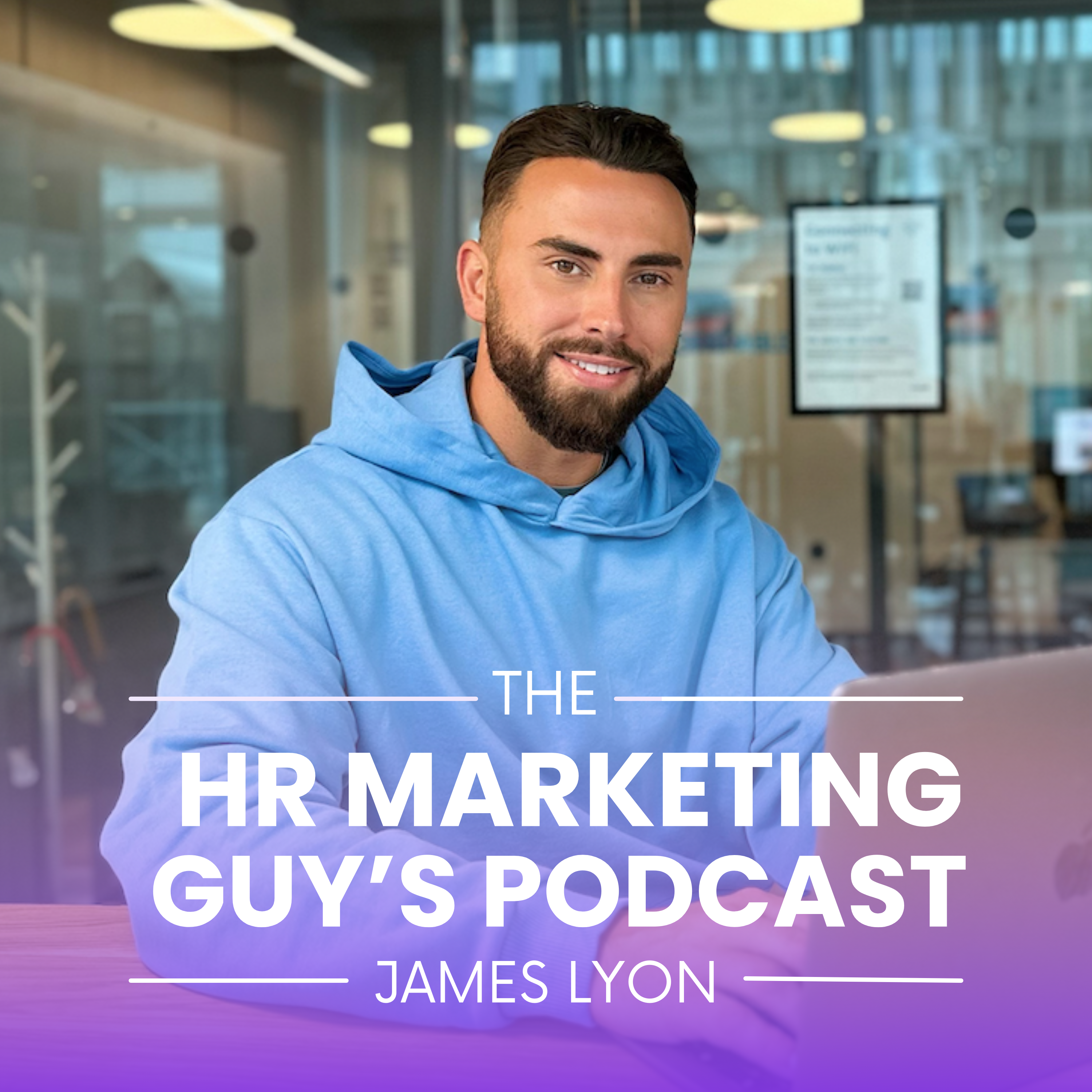Episode 26: How to get more referrals

Hey! James here and welcome to this week's episode.
Referrals are an awesome and affordable way to grow your consultancy.
So in today's main event, I'm going to talk you through a really clever way to make them happen more often.
And in today's thought of the week, I'm going to talk about hope marketing and give you a loving kick up the bum.
So let's jump straight in.
Transcription below:
Main event:
You've probably grown your consultancy to date via word of mouth and referrals.
Most consultants I speak to have.
And they're great!
Referrals are the easiest and most affordable way to grow your consultancy because other people are doing all the hard work for you.
So, can you just sit back and let the referrals roll in?
Absolutely not.
Not only is the growth of your business completely out of your control and unscalable in this way, but I also think that this type of "hope marketing" is really reckless when your personal earnings rely so much on the future success of your business.
That's why you always need to be doing some sort of marketing and lead generation activities.
Including actively asking your business contacts to refer you more often.
You should definitely be doing this.
And that's what this main event is all about.
Like I've said, referrals are a wonderful way to grow your consultancy.
You just can't leave them to chance.
So in today's main event, I'm going to explain how you can make them happen more often using something called a referral kit.
So there's a very famous book on referrals called Unstoppable Referrals by a marketing expert called Steve Gordon.
In the book, Steve talks about a simple yet powerful way to get more referrals without the awkwardness of asking.
...Using something that he calls a referral kit.
So instead of putting someone on the spot by saying...
“Hey, do you know anyone who might need my help?”
You instead give them something of value that they can easily share with other people.
This could be a short eBook, checklist, or anything else that other business owners could find useful and that positions you as an expert.
So rather than asking for a referral outright, you can say:
“I’ve put together a free guide that your contacts might find really useful. Please feel welcome to pass it on and send them the link.”
So instead of asking for a favour, you’re offering a gift, making it far more natural for people to share.
And that’s the magic of a referral kit.
It makes it easy for your clients and network to say:
“I know someone who could use this – let me send it to them.”
It's a lead magnet that people can share on your behalf.
So what should you create for your referral kit?
Well, you have to ask yourself what is the one thing you could create that would be...
- valuable for other business owners to share
- AND helps you get new clients in the future?
Whenever I've spoken to clients about this in the past, we've always come back to either a compliance checklist or an HR buyer's guide.
So the compliance checklist speaks for itself.
And the HR buyer's guide explains the four different ways business owners can access HR support, with a bias towards working with an independent HR consultant like you, obviously.
So in the HR Marketing Box, we've created both compliance checklists and the HR buyer's guide for you to use in any way that you like, including for your referral kit. So be sure to check it out if you haven't done so already.
Now you understand the concept of a referral kit, let's look at who you should be asking for referrals from...
And I think there are three key audiences to focus on:
The first is accountants and solicitors.
These guys are great referrers, and you should definitely be connecting with all of your local accountants and solicitors
...or those that work in the same industries and niches as you.
To do this, I would start by creating a list of the accountants and solicitors that you want to speak with.
I would then send them an introductory letter or email, offering them your compliance checklist or HR buyer's guide as a great piece of value they can pass on to their contacts.
I would then follow up with each one personally via phone and try to book in some sort of lunch or meeting to get to know each other more and build a better connection.
And then I would contact all of these people at least monthly with a bulletin or newsletter-type thing to keep you in their minds.
You also almost have to treat these guys as a target market in themselves and market to them in the same way you would end clients if that makes sense.
So that's accountants and solicitors. The second audience for your referral kit should be your past clients.
If you’ve done a great job for someone, you should definitely reach out to them.
You'll still be offering past clients your referral kit...
But it would also be great if you could send them a little gift at the same time in anticipation of their referral, like a Starbucks or Amazon gift card.
This type of reciprocation strategy is great.
Also, instead of sending them a one-time email asking for a recommendation, I see this as more of a multi-touchpoint campaign.
- On a Monday, you can send them a letter.
- On a Wednesday, you can send them an email.
- On a Friday, you could send them a LinkedIn message.
- And at some point in week two, you could give them a quick phone call to see how they're doing, ask if there's anything you can help with at the moment, and check to see if they have any business friends they can recommend you to.
You might be able to generate some work from this contact too! You never know...
And within the HR Marketing Box, we have all of the campaign content you need to do this, including letters, emails, and LinkedIn DMs.
And finally, the third audience is your future clients.
You should be systemising how you ask for referrals from every single client in the future.
And this is really exciting because this is how you'll get future referrals on autopilot.
The easiest way to do this is by adding a referral step to your project completion process.
When you wrap up a project or piece of work, ensure you ask for two things:
- A testimonial
- A referral
By systemising this, you ensure that every happy client has the opportunity to send new business your way.
Another easy tweak to consider is adding a referral link to your email signature or footer and including this message within every single piece of communication that you send out.
Something as simple as:
“Know someone who could use our help? Share this compliance checklist with them.”
So to wrap up this week’s main event...
Referrals are a great way to grow your business.
But like anything, you can't just hope for them to happen.
You definitely should be asking for referrals and doing this on a regular basis.
Within this podcast, we've discussed the best way to do this by using a referral kit.
A referral kit is basically creating something of value that business owners can share with one another, like your compliance checklist or HR buyer's guide.
Once you've created your referral kit, you should then reach out to accountants, solicitors, and any other business that would be a great referrer to you.
You should then ask all of your old clients.
And then you should create a system to ask every new client in the future.
Remember, all of the content you need to do this can be found in the HR Marketing Box.
We have tonnes of educational guides and lead magnets in there that could be used as your main giveaway, including compliance checklists and an HR buyer's guide.
We've also created all of the campaign content you need to reach out to your different audiences and ask for a referral.
So check out the HR Marketing Box, create your referral kit, and start asking for more referrals today.
Give it a try and let me know if you need a hand.
I'm always here to jump on a call and have a chat.
Thought of the week:
In today's main event, we spoke about something called hope marketing and I want to focus on this for today's thought of the week.
As a business owner, the most important thing we can do is protect and increase our future personal earnings.
Although I want to enjoy business and the work I do, we're all ultimately here for the cash moneyyy.
And when your future earnings depend on the success of your consultancy, you can’t afford to leave things to chance.
Hope marketing is exactly what it sounds like - relying on hope instead of strategy to attract clients.
It's when you...
- Post on LinkedIn randomly, hoping someone notices you.
- Expect referrals to keep coming without asking for them
- Assume a good website is enough to bring in leads.
- Wait for business to come instead of actively pursuing it
When you're burying you're head in the sand and relying on hope, the growth of your consultancy and your future earnings are completely out of your control.
Like I said in today's main event, I actually think this reckless.
And it's even more reckless when you have family to support and people that rely on work from you, or employment for their own livelyhoods.
You not only have a responsibility to yourself, you have a responsibility to those who support you too.
And that's why, in today's thought of the week I want to give you a loving kick up the bum.
If you're just bumbling along with no real plan as to how to grow your consultancy, it's time to take action.
And I'm here to help you make that happen.
Let's book in an initial discovery call where I'll talk you through 3 jobs you need to do to grow your consultancy.
The first job is to create great packages and our flagship video programme "How to package up and sell HR to make more money" will help you,
The second job is to work on your brand awareness and this is where the HR Marketing Box and our Marketing VA service will help you.
And the third and final job is to create a lead generation funnel - to help you do this, we can work together on a 121 basis.
Email on james@thehrmarketingguy.com and let's book in a call.

